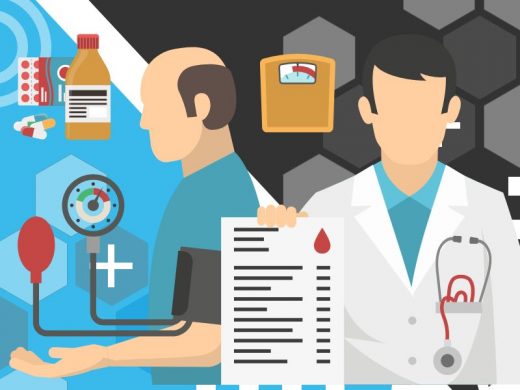
High blood pressure is a typical long-term condition that links to several health problems. You can experience High blood pressure for years without any symptoms. As the blood increases, you are more likely to have a heart attack and other cardiovascular problems.
An arterial pressure reading measures how much Blood is pushing against the walls of the coronary arteries. Blood flows from your heart to other parts of your body from these vessels. Your blood pressure typically rises and falls throughout the day.

Severe Symptoms of High Blood Pressure
- Severe headaches
- Nosebleed
- Confusion and fatigue
- Vision problems
- Chest pain
- Trouble in breathing
- Irregular heartbeat
- Bloody urine
- Pounding in the neck, ears, and chest
High Blood Pressure-related symptoms include:
- Nervousness
- Dizziness
- Sweating
- Trouble in sleeping
- Facial flushing
- Blood spots in the eye
Risk Factors and Causes of High Blood Pressure
There are combinations of factors that increase the development of hypertension. It includes:
- Genes. Some people have a higher risk of hypertension due to gene mutations or genetic abnormalities they inherit from their parents.
- Age. People approaching their 50s to 65 years old have a higher risk of developing high blood pressure.
- Race. Non-Hispanic individuals have a higher incidence of hypertension.
- Obesity. It leads to several cardiac problems and hypertension.
- Alcohol consumption. Alcoholic beverages increase the risk of high blood pressure and other heart-related diseases.
- Inactive lifestyle. Physical fitness activities help maintain blood flow and prevent high blood pressure.
- Diabetes/metabolic syndrome. High blood sugar and low metabolic rate increase your risk of having high blood pressure.
- High sodium intake. Change your diet to prevent high blood pressure and other diseases.

Causes and Risk Factors of Secondary High Blood Pressure
- Obstructive sleep apnea
- Kidney disease
- Congenital-heart disease
- Thyroid problems
- Medication-related hypertension
- Alcohol addiction
- Adrenal gland problems
- Endocrine tumors
How to Diagnose High Blood Pressure?
Taking blood pressure readings is the typical process to diagnose hypertension. If your blood pressure remains high, your doctor will perform more tests to determine underlying conditions. These tests can include:
- Cholesterol screening and blood tests
- EKG or ECG
- Ultrasound of your heart or kidneys
- Monitor your blood pressure at home
Treatment for High Blood Pressure
Alpha-blockers are medicines used to treat high blood pressure. Your doctor may also recommend diet and lifestyle changes. Visit your doctor regularly for proper treatment and medications. High blood pressure medications include:
- Beta-blockers
- Diuretics
- ACE inhibitors
- Angiotensin II receptor blockers
- Calcium channel blockers
- Alpha-2 agonists









